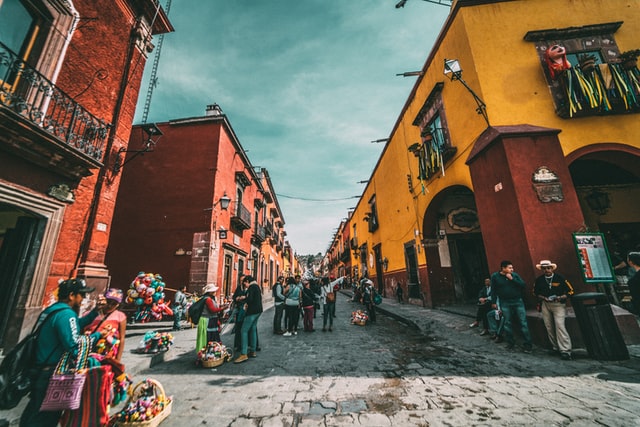An American’s Perspective on the Rights of Mexican Women

There are many benefits to travel, like experiencing different cultures, languages and food. Generally, these are my motivations for traveling as well. After living in Mexico for four months, I gained these experiences, as well as a new lens to look at the world–specifically when it comes to the treatment of Mexican women.
The first book I read while abroad was Lean In by Sheryl Sandberg. Reading this book has definitely helped shape how I view my own actions, as well as society’s perspective of what women can and should achieve in their lifetime. Sandberg gave insight on how women have opportunities to build their own careers and gain higher education in the Western world, but this path also comes with its struggles.
Teenage mothers from poor families remain “perpetually poor” from generation to generation as they lack opportunities, and often drop out of school.
In the Western world, women have challenges to consider–like raising a family, finding opportunities for progress, and accessing fair pay in the workplace. Yet, while growing up in the United States, I have always felt that women were treated quite fairly and that they are given numerous opportunities, just like our male counterparts. I have always been encouraged to “reach for the stars” and choose any profession without hesitation, such as an astronaut, doctor, or politician. But now I see that this is not the case for women all over the world.
While in Mexico, I met many women who were in charge of convenient stores and small-scale restaurants called cocinas economicas. Sometimes I even saw Mexican hewomen selling quesadillas, tortillas and fresh-squeezed orange juice in their front yards. It was often a family affair with mothers and daughters, or the whole family, working side-by-side.
After speaking to some of these ladies, I found the common motivation for these businesses was to support their family and/or send their children to school. This was the family’s trade–a pre-set career path. For an 18-year-old woman living in a rural Mexican town, continuing the family’s small business might be her only option.
An American’s Perspective on the Rights of Mexican Women.
Another factor to consider is teenage pregnancy. As I walked around my Mexican hometown I noticed a high number of young girls with infants or toddlers by their sides–many more than I have seen in the US.
According to a Washington Post article, in Mexico, one in five live births are to mothers under the age of 20. A 2007 UNICEF report about teenage pregnancy in Latin America and the Caribbean cited that teenage mothers from poor families remain “perpetually poor” from generation to generation as they lack opportunities, and often drop out of school. Lack of education and economic opportunity are clear barriers to professional growth.
Luckily, due to economic growth, more urbanization, and increased access to education, Mexico’s birth rate in the past few years has fallen to 2.05 children per women, which is quite close to the US’s birthrate rate of 1.95.
Of course, America is not perfect when it comes to teenage pregnancy or the number of single-parent households. However, I feel like American society and Mexican society differ in managing teenage pregnancy and education for women. Religion does not play such an integral role in accessibility to resources and education in the US, whereas in Mexico it is still a major factor.
In January 2015, the Mexican government announced it had a new plan to address teenage pregnancy, and called on young fathers to stay involved in the lives of young mothers and their children. The government also increased access to sex education and healthcare, despite religious pressures.
I have realized that the US and Mexico each has its own social issues to address, with women at the center of many of these issues. Each country has its own way of approaching solutions for such issues and hopefully positive outcomes are in our future.
Travel has taught me there are many ways to live one’s life and not everyone has the same life choices as I do.
I feel that I am lucky to have been born in a country where even though there are barriers to overcome in the workplace and in women’s health, I have had the ability to continue my academic education in order to “reach for the stars.” No one has ever held me back from graduating high school, university or graduate school or told me this was not possible. I have had access to health education and resources that have helped me learn more about my body and how to live a healthy life. I have not had the fear of being “perpetually poor” or of teenage pregnancy, which in a sense, is a privilege.
Not every woman gets these resources and not every woman is given the opportunity to continue her education. Travel has taught me there are many ways to live one’s life and not everyone has the same life choices as I do. And this is the beauty of travel: perspective.
Photo credit for An American’s Perspective on the Rights of Mexican Women by Unsplash.








